“We give gratitude to things that came before us like the jellyfish, whose cells began one of the first types of division of labor or the earthworm for continuous digestion. We also show gratitude to the Phoenicians for the start of our alphabet or the Greeks for their democratic government. We try and help children understand that someone or something worked very hard in the past to give us what we have today.” -Chesapeake Montessori School
On Thanksgiving, my dad never made us go around the table and say what we are thankful for. I assume this was because he knew I would say something like, “I’m thankful for my Game Boy,” or “I’m thankful Zach isn’t talking right now (my brother and I REALLY loved being around each other),” but as someone that spends so much time with your children, I wanted to share the things I see each day that make me thankful. I am thankful that, although they sometimes bicker like brothers and sisters, your children are able to step aside and talk through concerns and problems with children and adults. I am thankful I get to constantly see older students helping younger students be more independent. I am thankful for the times when students are disappointed in themselves and another child takes time out of their day to go see how they can help or to give some words of encouragement. I am thankful for Community Meeting and the chance it gives me to see students solving their own problems and voicing their concerns, without needing any adult intervention or assistance. I am thankful that our students feel so comfortable in our environment that they plan and execute lessons for other students as if they spent years studying education and child development. I am thankful to spend every day showing new lessons to your children and seeing how much they can do with the information they are given, almost always surpassing my expectations.
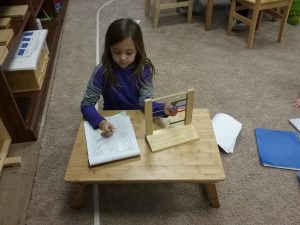
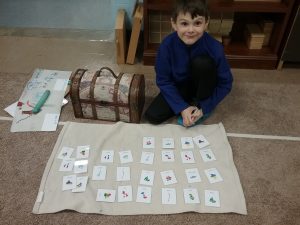
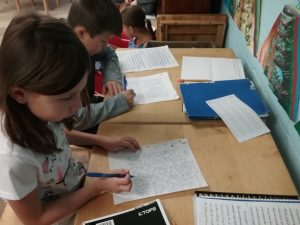

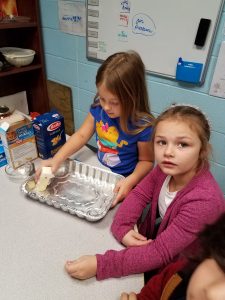
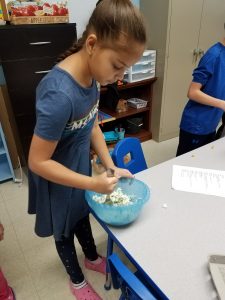
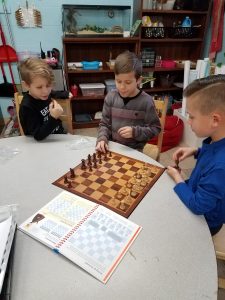
A Peek at Next Week
Next week, first year students will use the Subtraction Snake Game, review the use of a verb, continue studying fundamental needs, further investigate the Five Kingdom Chart, and begin planet research. Second year students will continue studying geographic features, will label the parts of a seed, will bisect an angle, and will start multiplying on the Checkerboard! Third year students will research the eye, ear, and tooth, will find irregular past tense verbs, and will perfect their measuring skills with measuring cups and spoons. Fourth year students find discuss adverbials in sentences, the unit as part of a base 10 number system, and will discuss elements in our universe. Fifth year students will use the order of operations, will research mammals, will be introduced to genealogy and will write figures of speech.
